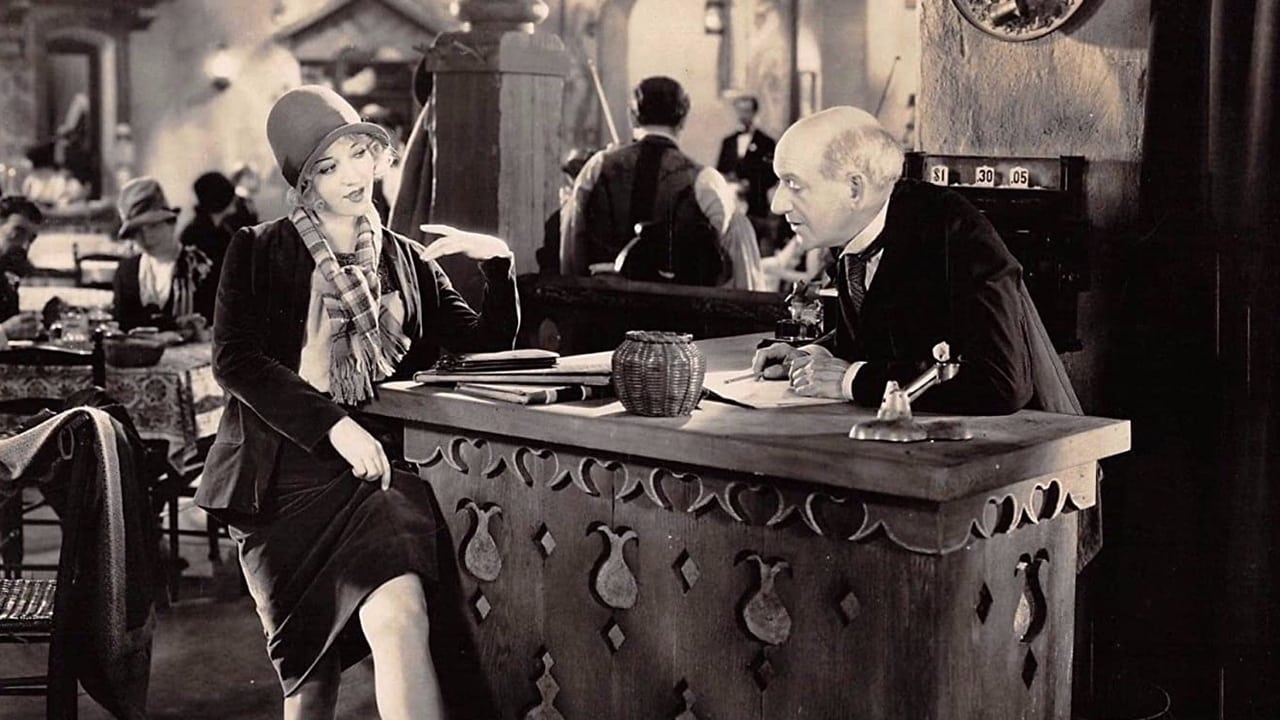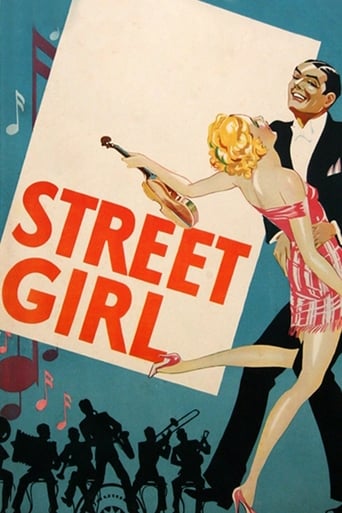

Had this film been made a few years later, I might have scored it a 6. This is because for 1929 (an early talkie) it's a pretty good little film. And, like so many films from 1929, it's a musical.The film begins with an excellent jazz combo performing. The four guys in it all have last names like the seasons. Mike Fall is sort of the leader. After the show, he comes upon a masher bothering a young lady, Frederika (Betty Compson). Then he learns she's hungry and homeless and he takes her home to stay with his bandmates. This good deed is soon rewarded, as Frederika turns out to have musical talents of her own and she becomes part of the band. And, more importantly, she turns out to know the prince of the fictional country from which she came. His coming to their concert at a local restaurant suddenly makes them famous and, for once, very well paid. However, as Mike and Frederika fall in love, you see that Mike is a very stupid and insecure jerk-- and he's jealous of the attention the prince has paid to her. In fact, this jealousy threatens to ruin the band.The film works best because the music is very enjoyable--even almost a century later. Additionally, Ms. Compson's odd accent works better than her accents in other films (such as a French one) because the country is fictional and you don't know what to compare it to! Overall, a fun little film. And, if you watch, look for a young Jack Oakie and Ned Sparks in the band.
... View MoreStreet Girl (1929) ** 1/2 (out of 4)After finding herself homeless and hungry, Frederika (Betty Compson) is giving a place to stay by Mike Fall (John Harron), a band member who lives with his three other players. Frederika believes that the group could demand much more money because of their playing skills and soon she's working as their manager and the five start to rise in popularity but when a Prince starts to woo Frederika, this doesn't sit well with Mike.STREET GIRL was the first film ever produced by RKO, although it turned out to be the second that they'd actually release. For the most part this is a pretty good early talkie that manages to follow a pretty basic formula but thankfully the cast is so good that it makes up for the family story, which even by 1929 standards was pretty predictable. Of course, the majority of the credit has to go to Compson who easily steals the picture of the lovable blonde.Compson has the misfortune of having to speak with a silly accent that goes in and out throughout the picture but outside of this she's certainly a delight to watch. She manages to be incredibly lovable from the first moment we meet her and you just can't help but fall in love with her just like the four roommates do. Another good performance comes from Harron who manages to pull off that jealousy role quite well and we also get Jack Oakie in a supporting part. Ned Sparks is quite funny as "Happy," the person constantly thinking someone is cheating him.The story itself is quite predictable but the technical side of things are actually quite good for 1929. A lot of times these early talkies pretty much have the camera sitting still but that's not the case here as there's a little style on display here. There are some musical numbers throughout and all of them are quite good and it's worth noting that the violin playing is done by Compson herself. STREET GIRL certainly has its flaws but fans of the actress will certainly enjoy her work here and fans of early talkies should be impressed on a technical level.
... View MoreOkay, it was 1929 and movies had just started talking. But this tale of a jazz combo who take in a violin-playing waif moves lethargically through a few settings. There's the night spot where the band performs and the apartment where they live --and where the dialogue drones on and on. As the street girl, Betty Compson desperately tries to fake a Ruritanian accent while a young, thin Jack Oakie gets off a a few snappy one-liners. When the cast stops jabbering and the music takes over, it's entertaining -- particularly an up-tempo number, "Lovable and Sweet," co-written by Oscar Levant. But when they talk, you can't stop yawning.
... View MoreThis 1929 original musical was a big hit (grossing more than $1M) for Betty Compson. She plays a "street girl," a homeless immigrant alone in a big American city. One rainy night she is saved from a lecher by a young man (John Harron) and invited upstairs for hot coffee. Harron is a musician and shares an apartment with three other musicians. They play for a local club.Compson asks them to play for her and they do a swingy version of "Lovable and Sweet" (which was written by Oscar Levant and Sidney Clare). She tells them it's a nice tune but they need a violin. They produce a violin and she plays a soft and beautiful version of "My Dream Memory" (the talented Compson was also a concert violinist). It's a terrific moment.She takes charge of the guys and gets them a gig for big bucks at a swanky restaurant where they become local stars. A dethroned prince from her home country drops by and almost steals her away but she has fallen for Harron. The film ends with a rousing dance number, "Broken Up Tune" as played by the group.Despite the iffy accent, Compson is once again just wonderful. She has just the right touch of "old world" gentleness about her as she runs around managing the group) in a very aggressive American manner). Harron is also very good. He was the younger brother of DW Griffith star, Robert Harron, who died at age 27 from a mysterious gunshot accident in 1920. Kinetic Jack Oakie sings and dances (and fakes some clarinet playing). Acerbic Ned Sparks plays a few instruments as well and grouches at people. Guy Buccola is the fourth band member. Joseph Cawthorn (an expert at accents) is the club owner. Ivan Lebedeff is the prince. Among the big-band musicians is Russ Columbo, a major singing star of the 30s. Eddie Kane and June Clyde have small roles.What this film is not, is a frenzied backstage musical, which was the rage for a time after the success of THE Broadway MELODY. After an initial craze, the public quickly tired of backstage musicals and all-star revues. STREET GIRL went in another direction, tying together a love story with music.This film is worth watching for the great music and unjustly forgotten Betty Compson.
... View More